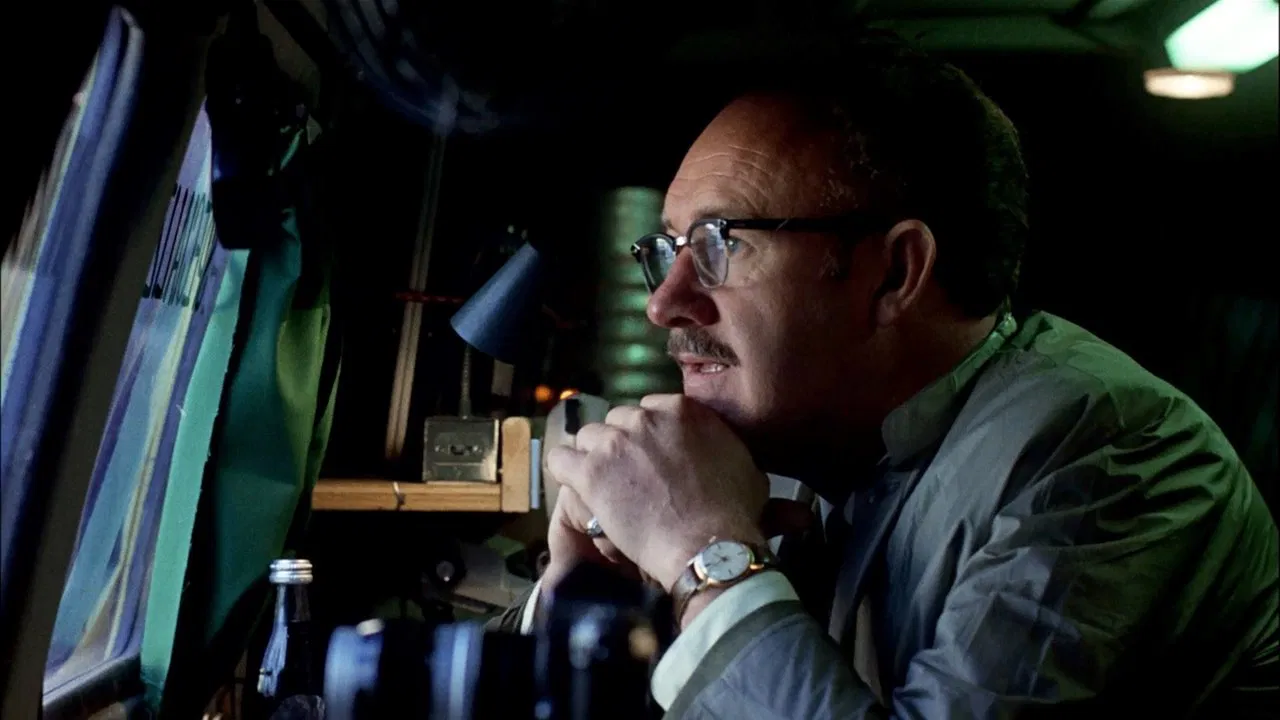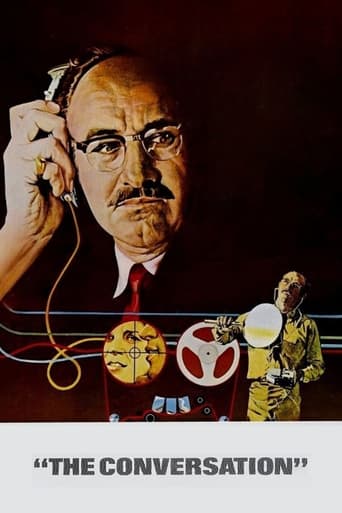

Looking at various lists on IMDb,I found a great list by Red-Barracuda,which had a rather overlooked Francis Ford Coppola title near the top. Catching up on eps of Screen Junkies News the next day,I was taken aback when one of the hosts picked the same film as the best underrated movie by a famous director,which led to me joining the listening party.View on the film: Attempting to get the film made since the early 60's,writer/directing auteur Francis Ford Coppola proves that it was worth him spending all that time fighting for this title with immaculate stylisation. Changing cinematographers in mid-production, Coppola impressively keeps the visual motifs consistent, with Caul's spy centre given a dour brown appearance where extended takes hold on Caul's worker drone mindset the surroundings build,whilst Caul's mysterious baker is given a chic, Wall Street elite tower. Playing David Shire unsettling electronic score when filming and having Walter Murch cast the sound montages, Coppola manipulates the soundtrack with masterful procession,as Caul's obsession to unscramble the audio reels the viewer into piecing together their own interpretation of the recordings.Keeping in the dark the reason the recording has been made for the first half, the screenplay by Coppola brilliantly records Caul as a meek Winston Smith,who never questions the people who are paying him,and treats the taping he makes as a mundane part to his lonely life. Uncoiling Caul's obsession, Coppola plays a sly line in misdirection which cleverly mis-matches what is seen and what is heard,and leads into an ending that turns Caul into one of the plumbers of paranoia in the era. Peeling away all the movie star charm,Gene Hackman gives an outstanding performance as Caul,who Hackman squeezes into every corner of doubt and anxiety, by listening to all the conversations.
... View MoreWell-known as one of Gene Hackman's best roles. I don't know if I completely agree with that, but it IS pretty good acting work. The film is partly psychological character study, part suspense. Elizabeth MacRae, Harrison Ford, and Teri Garr do nice work in small roles. Films like this, which focus on technology, often do not age well, and that's the case with this one. While it is interesting to see how surveillance was done in the early Seventies, it only brings home how much easier and quicker these things can be done with computers. It seemed to me that one of the themes was the shocking (for the times) lack of privacy that everyone had, but of course that is nothing compared to now.
... View MoreThis film started to depict usual park. It was so funny day. There were some couples, parents and children and performers. But one couple was tapped by some men. I thought this couple was just main character in this film, because they looked victim indeed and this seemed to center around this couple. So I had no idea about Harry Caul who was the real main character and the incident waiting for him at first. I think this film has multiple theme. One of the theme is the fear of surveillance. We go several places and live in everyday life. There are some surveillance camera everywhere of town. Then, does one might say that our privacy is protected? The answer is no. Our privacy is infringed unconsciously. This film might want to say about that.
... View MoreFrancis Ford Coppola, the legendary film maker has his signature in the movie. The movie may be a little dragging in the beginning for normal audience. But, once you finish the film, you will be excited and go for a second time. That's the master.The Conversation is about a spy expert. He is specialized in taping people's conversations. The movie begins with such a complicated task. The brilliant protagonist, with his futuristic vision has well planned and executed that operation. But, as he decodes the target's conversations, he has a feeling that if he handover the tape to the client, the victims may be murdered. This thought haunts him and makes a tough time with the client.In this era of technology, where you can fix a camera anywhere you like, this movie is really important. There is an exhibition that the protagonist attends. The technology explained there is amazing. Remember the movie was released in 1974.A very well made film. It has a different face of its own. The movie will leave an impact in your mind. You may be worried about how secured your privacy is...!!A must watch. Highly recommended.#KiduMovie
... View More